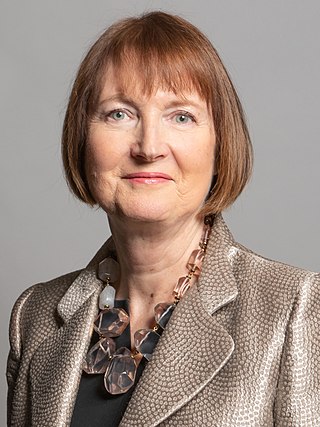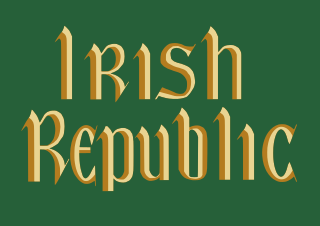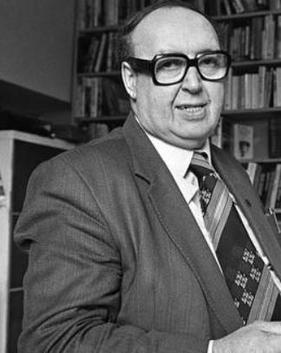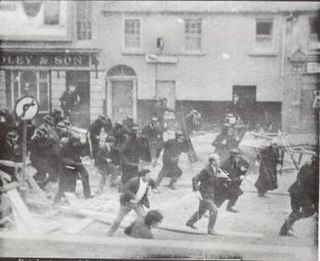Related Research Articles

The Troubles were an ethno-nationalist conflict in Northern Ireland that lasted about 30 years from the late 1960s to 1998. Also known internationally as the Northern Ireland conflict, it is sometimes described as an "irregular war" or "low-level war". The conflict began in the late 1960s and is usually deemed to have ended with the Good Friday Agreement of 1998. Although the Troubles mostly took place in Northern Ireland, at times violence spilled over into parts of the Republic of Ireland, England and mainland Europe.

The Royal Ulster Constabulary (RUC) was the police force in Northern Ireland from 1922 to 2001. It was founded on 1 June 1922 as a successor to the Royal Irish Constabulary (RIC) following the partition of Ireland. At its peak the force had around 8,500 officers, with a further 4,500 who were members of the RUC Reserve.

Harriet Ruth Harman is a British politician and solicitor who has served as Member of Parliament (MP) for Camberwell and Peckham, formerly Peckham, since 1982. A member of the Labour Party, she has served in various Cabinet and Shadow Cabinet positions.

Civil rights movements are a worldwide series of political movements for equality before the law, that peaked in the 1960s. In many situations they have been characterized by nonviolent protests, or have taken the form of campaigns of civil resistance aimed at achieving change through nonviolent forms of resistance. In some situations, they have been accompanied, or followed, by civil unrest and armed rebellion. The process has been long and tenuous in many countries, and many of these movements did not, or have yet to, fully achieve their goals, although the efforts of these movements have led to improvements in the legal rights of some previously oppressed groups of people, in some places.

Liberty, formerly, and still formally, called the National Council for Civil Liberties (NCCL), is an advocacy group and membership organisation based in the United Kingdom, which challenges unjust laws, protects civil liberties and promotes human rights. It does this through the courts, in Parliament and in the wider community. Liberty also aims to engender a "rights culture" within British society. The NCCL was founded in 1934 by Ronald Kidd and Sylvia Crowther-Smith, motivated by their humanist convictions.

Irish republicanism is the political movement for the unity and independence of Ireland under a republic. Irish republicans view British rule in any part of Ireland as inherently illegitimate.

Patrick Joseph "Paddy" Devlin was an Irish socialist, labour and civil rights activist and writer. He was a founding member of the Social Democratic and Labour Party (SDLP), a former Stormont MP, and a member of the 1974 Power Sharing Executive.
The Northern Ireland Civil Rights Association (NICRA) (Irish: Cumann Cearta Sibhialta Thuaisceart Éireann) was an organisation that campaigned for civil rights in Northern Ireland during the late 1960s and early 1970s. Formed in Belfast on 9 April 1967, the civil rights campaign attempted to achieve reform by publicising, documenting, and lobbying for an end to discrimination against Catholics in areas such as elections (which were subject to gerrymandering and property requirements), discrimination in employment, in public housing and abuses of the Special Powers Act.

Ulster loyalism is a strand of Ulster unionism associated with working class Ulster Protestants in Northern Ireland. Like other unionists, loyalists support the continued existence of Northern Ireland within the United Kingdom, and oppose a united Ireland. Unlike other strands of unionism, loyalism has been described as an ethnic nationalism of Ulster Protestants and "a variation of British nationalism". Loyalists are often said to have a conditional loyalty to the British state so long as it defends their interests. They see themselves as loyal primarily to the Protestant British monarchy rather than to British governments and institutions, while Garret FitzGerald argued they are loyal to 'Ulster' over 'the Union'. A small minority of loyalists have called for an independent Ulster Protestant state, believing they cannot rely on British governments to support them. The term 'loyalism' is usually associated with paramilitarism.
Restrictions on sexual activity involving children in the United Kingdom and its predecessors have existed since medieval times. During the 1970s, there was some political advocacy in favour of significantly reducing the age of consent, supported in part by those openly professing an attraction to minors. Meanwhile, over a similar time period, the unequal age of consent for straight and gay young people was campaigned against by the LGBT rights movement. More recently arguments have occasionally been made in favour of reducing the age of consent, generally to an earlier point in adolescence.

During 12–16 August 1969, there was an outbreak of political and sectarian violence throughout Northern Ireland, which is often seen as the beginning of the thirty-year conflict known as the Troubles. There had been sporadic violence throughout the year arising out of the Northern Ireland civil rights campaign, which demanded an end to discrimination against Catholics and Irish nationalists. Civil rights marches had been attacked by Protestant loyalists, and protesters often clashed with the Royal Ulster Constabulary (RUC), the overwhelmingly Protestant police force.
The Troops Out Movement (TOM) was an Irish republican organisation formed in the United Kingdom in 1973, following actions by the British Army in Northern Ireland during the Troubles, including the Bloody Sunday and Ballymurphy massacres by the Parachute Regiment. The organisation's goals were to secure the withdrawal of British troops from Northern Ireland and support self-determination for the Irish people as a whole. These main aims were supplemented by smaller ones such as the demilitarisation of the Northern Irish police and the paramilitary Ulster Special Constabulary (USC) as well as opposition to discriminatory policies against Catholics in Northern Ireland. The TOM sought partnerships and other forms of cooperation with like-minded organisations in Ireland, Great Britain, and internationally.
Events during the year 1968 in Northern Ireland.
The Mid Ulster by-election was held on 17 April 1969 following the death of George Forrest, the Ulster Unionist Party Member of Parliament for Mid Ulster. The two-way contest was unusual in featuring two female candidates.

The Paedophile Information Exchange (PIE) was a British pro-paedophile activist group, founded in October 1974 and officially disbanded in 1984. The group campaigned for the abolition of the age of consent. It was described by the BBC in 2007 as "an international organisation of people who trade obscene material".

Lesbian, gay, bisexual, transgender (LGBT) rights in Northern Ireland have traditionally been slower to advance than the rest of the United Kingdom, with the region having lagged behind England, Scotland, and Wales. Northern Ireland was the last part of the United Kingdom where same-sex sexual activity was decriminalised, the last to implement a blood donation “monogamous no waiting period” policy system for men who have sex with men and, after intervention by the Parliament of the United Kingdom, the last to allow same-sex marriage. Compared to the neighbouring Republic of Ireland, all major LGBT rights milestones had been reached earlier in Northern Ireland, with the exception of same-sex marriage. Homosexuality was decriminalised in Northern Ireland a decade earlier and civil partnerships were introduced six years earlier.
The Northern Ireland civil rights movement dates to the early 1960s, when a number of initiatives emerged in Northern Ireland which challenged the inequality and discrimination against ethnic Irish Catholics that was perpetrated by the Ulster Protestant establishment. The Campaign for Social Justice (CSJ) was founded by Conn McCluskey and his wife, Patricia. Conn was a doctor, and Patricia was a social worker who had worked in Glasgow for a period, and who had a background in housing activism. Both were involved in the Homeless Citizens League, an organisation founded after Catholic women occupied disused social housing. The HCL evolved into the CSJ, focusing on lobbying, research and publicising discrimination. The campaign for Derry University was another mid-1960s campaign.
Inez McCormack was a Northern Irish trade union leader and human rights activist. She was the first female president of the Irish Congress of Trade Unions, representing the UNISON union. She also successfully campaigned for the inclusion of strong equality and human rights provisions in the Good Friday Agreement, and was a signatory to the MacBride Principles for fair employment. In 2002 she was described as "probably the best known and most experienced human rights campaigner in this country."
Conn McCluskey was an Irish civil rights activist in the 1960s, and a medical doctor.
Patricia McCluskey (1914–2010) was a Northern Ireland civil rights activist.
References
- 1 2 CSJ Founding Statement
- ↑ John Manley, "'Father' of civil rights movement dies", The Irish News, 17 December 2013
- ↑ Mansbach, Richard (1973), Northern Ireland: Half a Century of Partition, Facts on File, Inc, New York, pg 30, ISBN 0-87196-182-2